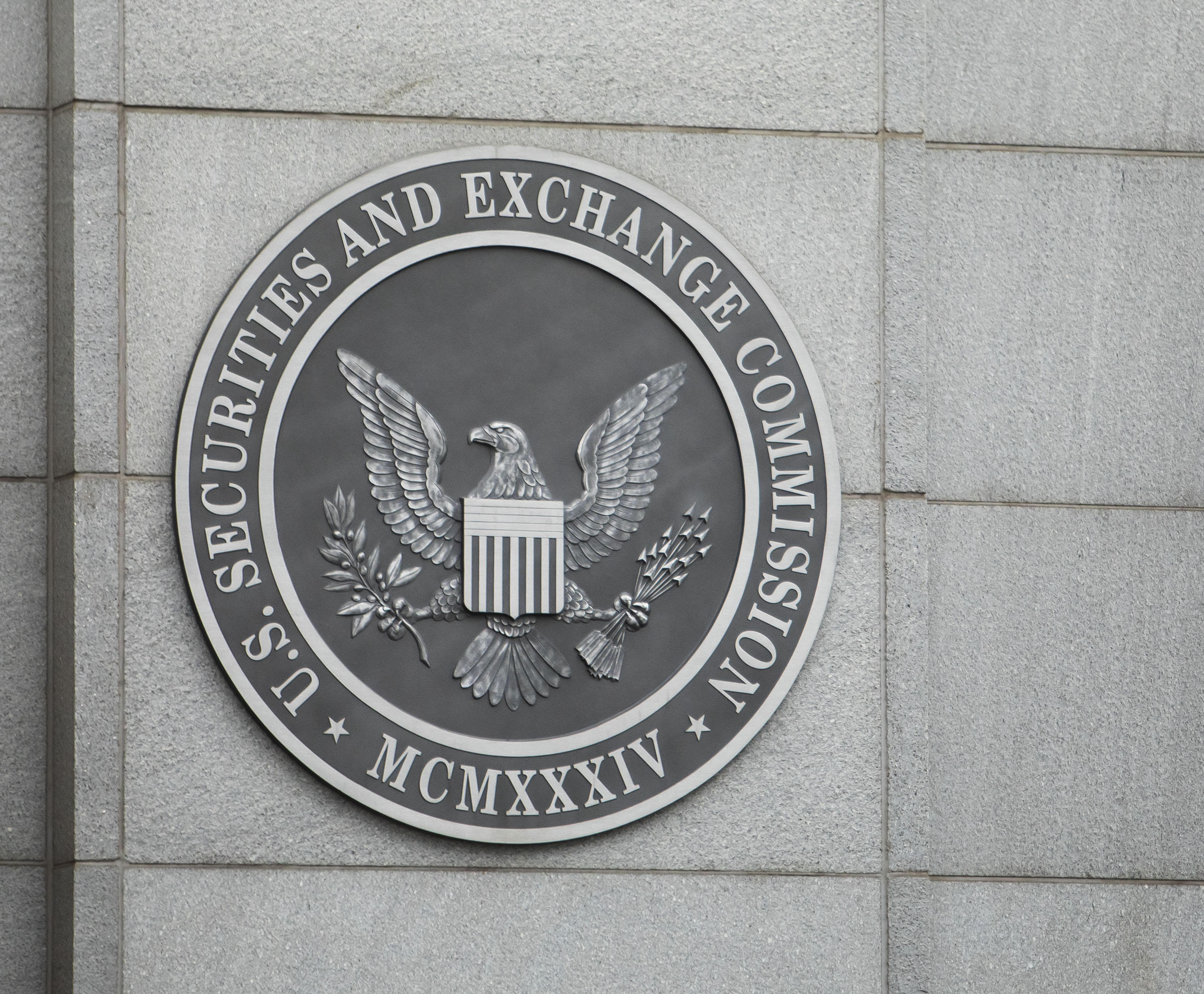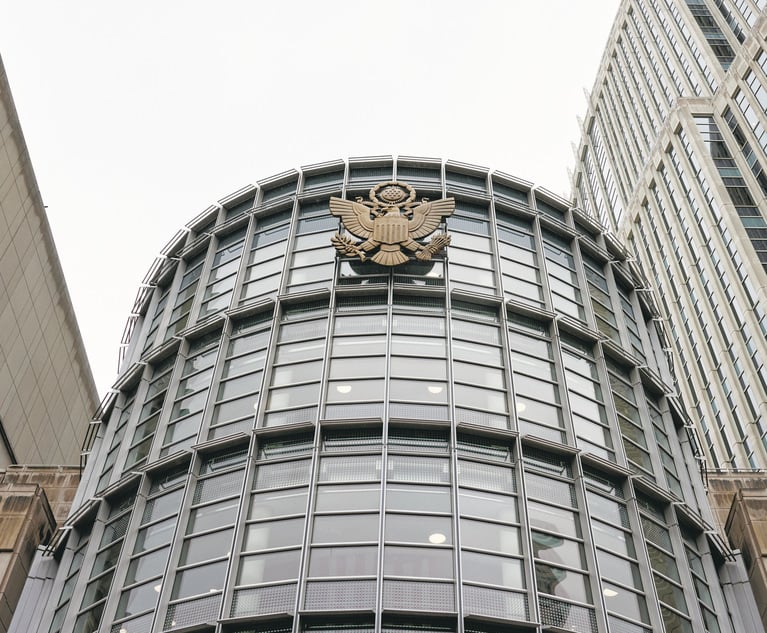 U.S. Securities and Exchange Commission building in Washington, D.C. Jan. 5, 2019.
U.S. Securities and Exchange Commission building in Washington, D.C. Jan. 5, 2019. The SEC's New Approach to Neither-Admit-Nor-Deny Policy May Not Be So New After All
The SEC's newly appointed Director of the Division of Enforcement, Gurbir Grewal, recently announced a potentially significant change to the policy, indicating that the SEC will require admissions in certain matters.
December 03, 2021 at 02:30 PM
7 minute read
Since 1972, the Securities and Exchange Commission (SEC) has generally allowed companies and individuals to settle civil enforcement investigations without admitting the SEC's allegations, provided that the settling party also does not deny them. See Securities Act Release No. 5337, Exchange Act Release No. 9882, Investment Company Act Release No. 7526 (Nov. 28, 1972) (codified at 17 C.F.R. §202.5(e)). The SEC's newly appointed Director of the Division of Enforcement, Gurbir Grewal, recently announced a potentially significant change to that policy, indicating that the SEC will require admissions in certain matters. Specifically, Grewal stated that, "in an era of diminished trust, [the SEC] will, in appropriate circumstances, be requiring admissions in certain cases where heightened accountability and acceptance of responsibility are in the public trust." Gurbir Grewal, Director, Division of Enforcement, Remarks at SEC Speaks 2021 (Oct. 13, 2021). He further explained that "[a]dmissions, given their attention-getting nature, also serve as a clarion call to other market participants to stamp out and self-report the misconduct to the extent it is occurring in their firm." Id.
News reports highlighted the importance of Grewal's announcement—and rightly so, as it marks a potentially significant change. Still, the announcement prompts more questions than answers: What are the "appropriate circumstances" in which the SEC will require admissions? In what types of cases does the SEC believe "heightened accountability and acceptance of responsibility are in the public trust"? Companies and individuals facing civil SEC enforcement investigations will need to carefully monitor the SEC's new approach and consider its implications for potential settlement options. This is especially true for individuals who act as corporate "gatekeepers," such as attorneys, compliance personnel, and auditors, whom Grewal said "will remain a significant focus" for the SEC. Id.
This content has been archived. It is available through our partners, LexisNexis® and Bloomberg Law.
To view this content, please continue to their sites.
Not a Lexis Subscriber?
Subscribe Now
Not a Bloomberg Law Subscriber?
Subscribe Now
NOT FOR REPRINT
© 2025 ALM Global, LLC, All Rights Reserved. Request academic re-use from www.copyright.com. All other uses, submit a request to [email protected]. For more information visit Asset & Logo Licensing.
You Might Like
View All
Disbarred NY Atty Receives 54-Month Prison Sentence After $3M Embezzlement
3 minute read

Charlie Javice Jury Will Not See Her Texts About Elizabeth Holmes

'You Became a Corrupt Politician': Judge Gives Prison Time to Former Sen. Robert Menendez for Corruption Conviction
5 minute readLaw Firms Mentioned
Trending Stories
- 1Pistachio Giant Wonderful Files Trademark Suit Against Canadian Maker of Wonderspread
- 2New York State Authorizes Stand-Alone Business Interruption Insurance Policies
- 3Buyer Beware: Continuity of Coverage in Legal Malpractice Insurance
- 4‘Listen, Listen, Listen’: Some Practice Tips From Judges in the Oakland Federal Courthouse
- 5BCLP Joins Saudi Legal Market with Plans to Open Two Offices
Who Got The Work
J. Brugh Lower of Gibbons has entered an appearance for industrial equipment supplier Devco Corporation in a pending trademark infringement lawsuit. The suit, accusing the defendant of selling knock-off Graco products, was filed Dec. 18 in New Jersey District Court by Rivkin Radler on behalf of Graco Inc. and Graco Minnesota. The case, assigned to U.S. District Judge Zahid N. Quraishi, is 3:24-cv-11294, Graco Inc. et al v. Devco Corporation.
Who Got The Work
Rebecca Maller-Stein and Kent A. Yalowitz of Arnold & Porter Kaye Scholer have entered their appearances for Hanaco Venture Capital and its executives, Lior Prosor and David Frankel, in a pending securities lawsuit. The action, filed on Dec. 24 in New York Southern District Court by Zell, Aron & Co. on behalf of Goldeneye Advisors, accuses the defendants of negligently and fraudulently managing the plaintiff's $1 million investment. The case, assigned to U.S. District Judge Vernon S. Broderick, is 1:24-cv-09918, Goldeneye Advisors, LLC v. Hanaco Venture Capital, Ltd. et al.
Who Got The Work
Attorneys from A&O Shearman has stepped in as defense counsel for Toronto-Dominion Bank and other defendants in a pending securities class action. The suit, filed Dec. 11 in New York Southern District Court by Bleichmar Fonti & Auld, accuses the defendants of concealing the bank's 'pervasive' deficiencies in regards to its compliance with the Bank Secrecy Act and the quality of its anti-money laundering controls. The case, assigned to U.S. District Judge Arun Subramanian, is 1:24-cv-09445, Gonzalez v. The Toronto-Dominion Bank et al.
Who Got The Work
Crown Castle International, a Pennsylvania company providing shared communications infrastructure, has turned to Luke D. Wolf of Gordon Rees Scully Mansukhani to fend off a pending breach-of-contract lawsuit. The court action, filed Nov. 25 in Michigan Eastern District Court by Hooper Hathaway PC on behalf of The Town Residences LLC, accuses Crown Castle of failing to transfer approximately $30,000 in utility payments from T-Mobile in breach of a roof-top lease and assignment agreement. The case, assigned to U.S. District Judge Susan K. Declercq, is 2:24-cv-13131, The Town Residences LLC v. T-Mobile US, Inc. et al.
Who Got The Work
Wilfred P. Coronato and Daniel M. Schwartz of McCarter & English have stepped in as defense counsel to Electrolux Home Products Inc. in a pending product liability lawsuit. The court action, filed Nov. 26 in New York Eastern District Court by Poulos Lopiccolo PC and Nagel Rice LLP on behalf of David Stern, alleges that the defendant's refrigerators’ drawers and shelving repeatedly break and fall apart within months after purchase. The case, assigned to U.S. District Judge Joan M. Azrack, is 2:24-cv-08204, Stern v. Electrolux Home Products, Inc.
Featured Firms
Law Offices of Gary Martin Hays & Associates, P.C.
(470) 294-1674
Law Offices of Mark E. Salomone
(857) 444-6468
Smith & Hassler
(713) 739-1250






